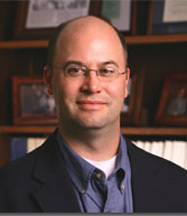
The Supreme Courts decision to overturn a 1976 law banning all handguns in the District of Columbia marks the first time in some 70 years that the court hassquarely examinedthe constitutional right to possess fire arms, according to a Notre Dame Law School scholar.
The Second Amendment is one of the better known, but more mysterious, provisions of our Constitution,said Richard W. Garnett, professor of law at Notre Dame.Today, in an opinion written by Justice Antonin Scalia, the justices, by a 5-4 vote, ruled that the blanket ban violates the Second Amendment which, the court affirmed, protects an individual right, and not simply a collectiveright, to own firearms.
The decision is fascinating, and noteworthy, because it provides an example of how citizens-group activism and scholarly research can push the court to revisit and reexamine its own premises.For decades, the courts assumed, somewhat uncritically, that the Second Amendment did not protect an individual right.But careful historical research by scholars situated across the political spectrum challenged this assumption.Among constitutional law experts, liberalsand conservativesalike have come to agree that the Second Amendment was understood to protect not only the rights of state governments and militias, but also the self-defense and liberty rights of individual citizens.Today, the court endorsed this widespread understanding.
Few constitutional rights are absolute, and the right secured by the Second Amendment isnt, either.Justice Scalia made it clear that todays decision does not mean that all gun control laws are unconstitutional, or that all gun related crimes are invalid.Far from it.The individual right at issue, as the justices understand it, is subject to reasonable regulation.Still, with todays decision, the Second Amendment has been brought into the family of individual freedoms, along with the freedoms of speech and religion, the right to a jury trial, and so on, that the Bill of Rights protects against excessive government burdens.
When the Supreme Court struck down a Louisiana law authorizing the death penalty for aggravated child-rape on Wednesday (June 25), it was being consistent with its recent decisions regarding capital punishment, according to Garnett.
Writing for the majority in the courts 5-4 decision inKennedy v. LouisianaJustice Anthony Kennedy said that the death penalty is unconstitutional except in cases which involvethe worst of crimes, those that, in the case of crimes against individuals, take the victims life.
It is widely thought that the Supreme Court overreached, in the early 1970s, when it attacked the death-penalty head-on,Garnett said.Today, the court majoritys approach is instead to focus on limiting the death penaltys reach – for example, by invalidating its use in cases involving developmentally disabled or juvenile offenders.
In his decision, Justice Kennedy emphasized not only the legislative trends and sentencing practices in the states, concluding that they suggested a consensus against the death-penalty for child-rape, as well as the courts own moral judgment about the purposes of punishment.
The justices conceded that, of course, the rape of a child is a depraved act and even admitted that there are moral grounds for questioninga rule that limits the death penalty to homicide crimes.Still, the majority concluded that our evolving standards of decency,and the principle of proportionality in punishment, preclude the use of the death penalty in child-rape cases.
Our constitution has much more to say about the processes of the criminal lawsearch-and-seizure, interrogation, jury trials, and so onthan about the substantive problem, which is inescapably a moral problem, of justifying punishment.The courts death-penalty cases are one of the relatively few arenas in which we see the justices grappling with the fascinating, challenging questions of moral desert, deterrence, and state power.At the same time, as the dissenters in todays case reminded us, our constitution for the most part leaves the hard work of assigning blame and meting out punishment to legislatures and juries.The challenge for the court is to enforce carefully the constitutions safeguards and limits without overstepping, and improperly substituting its own views for that of the people and their representatives.
In this case,Garnett concluded,even an observer who opposes capital punishmentas I docould have some reservations about Justice Kennedys methodology, about his understanding of the judicial role, and about some of the factors on which he and the majority relied in reaching their conclusion.Even some who believe that the death penalty is not morally justified will question the courts view that the constitution has removed from legislators the decision whether or not to authorize capital punishment in cases of aggravated child-rape.That said, todays decision is clearly consistent with the courts recent precedents, and has the merit of affirming, for death-penalty purposes, a relatively clear constitutional line between homicide crimes and other serious offenses.It is clear that a majority of the justices are uncomfortable with capital punishment as a general matter.Todays decision confirms that these justices have decided that it is better course to cabin and constrain capital punishment than to aggressively impose a death-penalty ban.Even though todays decision limits the reach of the death penalty, it leaves the general debate about capital punishment, and the question whether the death penalty is sensible policy or morally defensible, in the hands of the public.
A member of the Notre Dame Law School faculty since 1999, Garnett is a graduate of Yale Law School, where he served as senior editor of the Yale Law Journal and editor of the Yale Journal of Law and the Humanities. A former clerk for Chief Justice William H. Rehnquist, he practiced for two years at the Washington, D.C., law firm of Miller, Cassidy, Larroca and Lewin, specializing in criminal-defense, religious-liberty and education-reform matters. At Notre Dame, he teaches courses on criminal law, criminal procedure, First Amendment law and the death penalty.
_ Contact: Professor Garnett at 574-631-6981 or_ " rgarnett@nd.edu ":mailto:rgarnett@nd.edu
TopicID: 28428